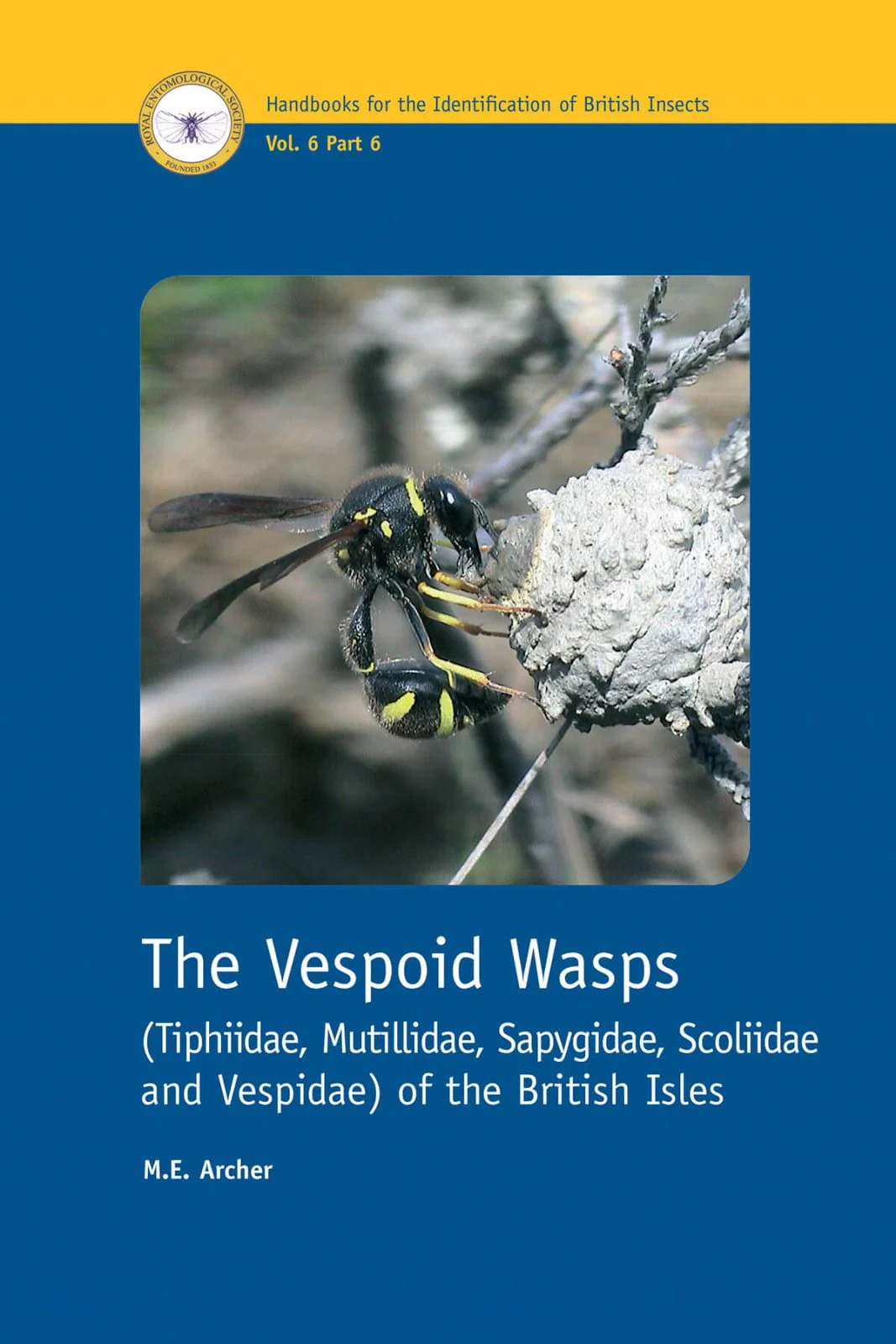The Vespoid wasps RES Handbook covers the 45 species of vespoid wasps that occur in Britain and Ireland.
The aculeate Hymenoptera consists of 3 superfamilies: Chrysidoidea, Vespoidea and Apiodea. Among these species are a small number of very common social wasps. This volume includes keys to the families, genera and species, with illustrations of diagnostic features throughout. The author provides advice on preparing of specimens for identification. Species accounts cover British and overseas distribution, habitats, adult activity period, nesting characteristics, prey, host records and flowers visited
Vespoid wasps are of some economic importance. The stings of social wasps cause pain, and in a few cases even lead to death. Social wasps can carry bacteria of Escherischia coli and Salmonella, both of which can cause food poisoning and gastro-enteritis. Fruit crops are spolit, particularly plums, pears and grapes. These wasps are a particular problem in bakeries and canning factories. However there are some economic benefits as well. Vespoid wasps kill large numbers of insects and spiders, particularly adult flies and moth larvae. They are also useful pollinators, visiting flowers such as figwort, cotoneaster and bilberry.
Handbooks for the Identification of British Insects is a series of books produced by the Royal Entomological Society (RES). Each Handbook provides illustrated identification keys to the insects of Britain, together with concise morphological, biological and distributional information. Accordingly all books contain line drawings, and the most recent volumes feature colour photographs. RES Handbooks are suitable for experienced users. The series also includes several Check Lists of British Insects. Field Studies Council has published RES Handbooks for many years. Many out-of-print Handbooks are now available for free download from the RES.
RES Handbook Vol 6 Part 6














